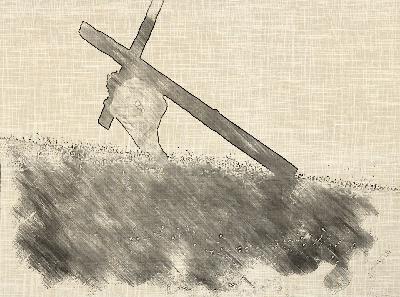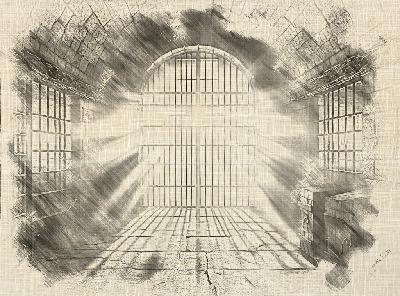Finding Courage in Christ: Insights from ‘Away With Our Fears’
Description
In the tapestry of Christian hymnody, few threads shine as brightly as those woven by Charles Wesley. His hymn “Away With Our Fears” stands as a testament to the power of faith to dispel the shadows of doubt and apprehension that so often cloud our spiritual journey. As we delve into the rich verses of this hymn, let us ponder the profound truths it unveils, and allow its melody to stir our souls towards a deeper, more courageous faith.
The context of this hymn’s creation is itself a metaphor for the Christian life. Written for a birthday celebration, it reminds us that each new day, each new year of our lives, is an opportunity for spiritual rebirth. Just as a birthday marks the anniversary of our physical birth, so too can it serve as a milestone in our spiritual pilgrimage. As the Psalmist writes, “This is the day that the Lord has made; let us rejoice and be glad in it” (Psalm 118:24 ). Wesley’s hymn echoes this sentiment, calling us to cast aside our fears and embrace the joy of our salvation.
The opening stanza boldly proclaims, “Away with our fears, The glad morning appears, When an heir of salvation was born!” Here, Wesley masterfully intertwines the concept of physical birth with spiritual rebirth. This echoes the words of Jesus to Nicodemus: “Very truly I tell you, no one can see the kingdom of God unless they are born again” (John 3:3). The “glad morning” Wesley speaks of is not just the dawn of a new day, but the dawning of a new life in Christ.
As we contemplate these words, we might ask ourselves: How often do we allow our fears to overshadow the gladness of our salvation? Do we truly live as “heirs of salvation,” or do we cower in the shadows of doubt and insecurity? The Apostle Paul reminds us, “The Spirit you received does not make you slaves, so that you live in fear again; rather, the Spirit you received brought about your adoption to sonship. And by him we cry, ‘Abba, Father'” (Romans 8:15 ).
Moving to the second stanza, Wesley acknowledges Jesus as the sole fountain of life and happiness: “Thee, Jesus, alone, The fountain I own Of my life and felicity here.” This beautiful imagery calls to mind Jesus’ words to the Samaritan woman at the well: “Whoever drinks the water I give them will never thirst. Indeed, the water I give them will become in them a spring of water welling up to eternal life” (John 4:14 ). Wesley understood that true contentment and joy can only be found in Christ, not in the fleeting pleasures of this world.
The third stanza speaks to the sovereignty of God in our lives: “With thanks I rejoice In thy fatherly choice Of my state and condition below.” Here, Wesley demonstrates a profound trust in God’s plan, even in circumstances that might seem less than ideal. This attitude reflects the words of the Apostle Paul: “I have learned to be content whatever the circumstances” (Philippians 4:11 ). How often do we question God’s choices for our lives, rather than trusting in His infinite wisdom and love?
As the hymn progresses, Wesley touches on the theme of God’s preserving grace: “I sing of thy grace, From my earliest days, Ever near to allure and defend; Hitherto thou hast been My preserver from sin, And I trust thou wilt save to the end.” This verse beautifully encapsulates the doctrine of perseverance, the belief that God will preserve His children in faith until the end. As Jesus promised, “My sheep listen to my voice; I know them, and they follow me. I give them eternal life, and they shall never perish; no one will snatch them out of my hand” (John 10:27-28).
In the fifth stanza, Wesley acknowledges the many trials and temptations that beset the Christian life: “O the infinite cares And temptations and snares Thy hand hath conducted me through!” Yet, even in the midst of these challenges, he recognizes the abundant blessings and mercies of God. This paradox of Christian experience—suffering and blessing coexisting—is a theme that runs throughout Scripture. As the Apostle Paul wrote, “We are hard pressed on every side, but not crushed; perplexed, but not in despair; persecuted, but not abandoned; struck down, but not destroyed” (2 Corinthians 4:8-9).
The sixth stanza bursts with joy at the realization of being part of God’s family: “What a mercy is this, What a heaven of bliss, How unspeakably happy am I! Gather’d into the fold, With thy people enroll’d, With thy people to live and to die!” This echoes the words of the Apostle Peter: “But you are a chosen people, a royal priesthood, a holy nation, God’s special possession, that you may declare the praises of him who called you out of darkness into his wonderful light” (1 Peter 2:9). Wesley understood that to be part of God’s people is not just a future hope, but a present reality that should fill us with inexpressible joy.
In the seventh stanza, Wesley marvels at God’s use of weak and imperfect vessels for His glory: “O the goodness of God In employing a clod His tribute of glory to raise!” This humble acknowledgment of human frailty in contrast to God’s power is reminiscent of Paul’s words: “But we have this treasure in jars of clay to show that this all-surpassing power is from God and not from us” (2 Corinthians 4:7). How often do we allow our sense of inadequacy to hinder our service to God, forgetting that it is His power working through us that truly matters?
The eighth stanza speaks of the fruitfulness that comes from faithful service: “O the fathomless love, That has deign’t to approve, And prosper the work of my hands!” Wesley uses the metaphor of a shepherd crossing a brook with his crook, only to find his flock multiplied on the other side. This image calls to mind Jesus’ promise: “Very truly I tell you, whoever believes in me will do the works I have been doing, and they will do even greater things than these, because I am going to the Father” (John 14:12 ).
In the ninth stanza, Wesley expresses amazement at the growth of God’s kingdom: “Who, I ask in amaze, Hath begotten me these!” This wonderment at God’s work through human instrumentality echoes Isaiah’s prophecy: “Then you will look and be radiant, your heart will throb and swell with joy; the wealth on the seas will be brought to you, to you the riches of the nations will come” (Isaiah 60:5). Wesley recognizes that true spiritual growth and multiplication can only come from God, not from human effort alone.
The tenth stanza is a doxology, offering praise to the Triune God: “All honour and praise To the Father of grace, To the Spirit, and Son I return!” This threefold praise reflects the Trinitarian nature of God and reminds us that our salvation and service are the work of Father, Son, and Holy Spirit in perfect harmony. As Paul writes, “May the grace of the Lord Jesus Christ, and the love of God, and the fellowship of the Holy Spirit be with you all” (2 Corinthians 13:14 ).
The eleventh stanza speaks of the joy found in serving God: “In a rapture of joy My life I employ, The God of my life to proclaim.” Wesley understood that the highest purpose and greatest fulfillment in life come from proclaiming God’s glory and sharing the good news of salvation. This echoes Jesus’ words: “The thief comes only to steal and kill and destroy; I have come that they may have life, and have it to the full” (John 10:10 ).
The final stanza is a beautiful commitment of Wesley’s remaining days to God’s service: “My remnant of days I spend in his praise, Who died the whole world to redeem: Be they many or few, My days are his due, They all are devoted to him!” This dedication reflects Paul’s sentiment: “For to me, to live is Christ and to die is gain” (Philippians 1:21 ). Wesley recognized that every day is a gift from God, to be used for His glory.
As we reflect on this magnificent hymn, we are called to examine our own hearts. Do we approach each day with fear and trepidation, or with the joyful expectation of heirs of salvation? Do we recognize Jesus as the sole fountain of our life and happiness? Do we trust in God’s sovereign choices for our lives, even when they don’t align with our preferences? Do we acknowledge God’s preserving grace, even in the midst of temptations and trials? Do we rejoice in our place within God’s family? Do we humbly offer ourselves as instruments for God’s glory, regardless of our perceived inadequacies? Do we marvel at God’s work in and through us? Do we offer unceasing praise to the Triune God? Do we find joy in proclaiming God’s goodness? And finally, are we willing to devote all our remaining days to God’s service?
Charles Wesley’s hymn challenges us to live boldly and joyfully in the light of God’s love and grace. It calls us to cast aside our fears and embrace the abundant life that Christ offers. As we face the uncertainties and challenges of life, may we, like Wesley, find our strength and joy in the unfailing love of our Savior.
Let us remember the words of the Apostle Paul: “For I am convinced that neither death nor life, neither angels nor demons, neither the present nor the future, nor any powers, neither height nor depth, nor anything else in all creation, will be able to separate us from the love of God that is in Christ Jesus our Lord” (Romans 8:38-39). With this assurance, we can indeed say, “Away with our fears!” and step boldly into whatever God has called us to do.
In conclusion, “Away With Our Fears” is not just a hymn to be sung, but a clarion call to lived faith. It challenges us to examine our hearts, to cast aside our doubts and insecurities, and to embrace fully the joy and purpose found in Christ. As we face the uncertainties of life, may we, like Charles Wesley, find our strength and courage in the unfailing love and grace of our Savior. May we live each day as true heirs of salvation, confident in God’s preserving grace, rejoicing in our place wit
























